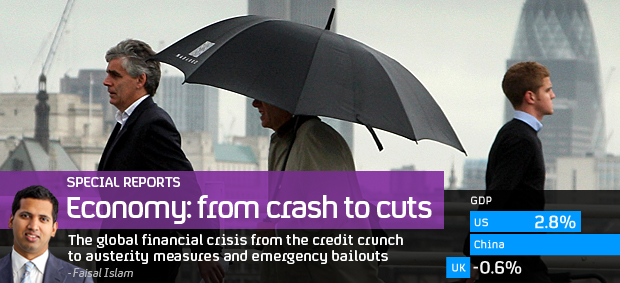UK inflation slows to 4.8 per cent
Inflation eases slightly in November for a second successive month, raising expectations that the Bank of England will be able to provide additional stimulus for the economy next year.

Slower growth in food, transport and clothing prices helped push down annual consumer price inflation to 4.8 per cent, its lowest since August.
In October inflation eased for the first time since June to 5.0 percent, from a three-year high of 5.2 per cent
The Bank of England has forecast that weak economic growth will push inflation below its 2 per cent target by the end of 2012, leading some economists to believe the bank will inject an extra £75bn into the economy in February, when its current asset purchases are completed.
“The Bank of England has been arguing for some time that consumer price inflation will fall back sharply once temporary upward pressures wane,” said Howard Archer, analyst at IHS Global Insight.
“As such, further quantitative easing by the Bank of England looks ever more inevitable early in 2012 to try and boost the struggling economy.”
Vicky Redwood, chief UK economist at Capital Economics, said: “November’s UK inflation figures provide further hope that inflation has now passed its peak and could soon fall pretty sharply.
“There is still a lingering risk that inflation picks up again in December, but come January – when the VAT rise drops out – it should start to fall like a stone.”
A Treasury spokesperson said that the lower inflation is good news for family budgets.
In October Tesco triggered a price war with its rivals in October with its £500 million Big Price Drop campaign, which saw the cost of 3,000 everyday products cut.
Competitors soon responded with their own schemes, including Sainsbury’s Brand Match campaign, while Asda cut prices at the petrol pumps.
As well as supermarket discounting, food price inflation also benefited from weaker comparatives from last year when poor harvests and supply problems drove up the cost of cereals, particularly bread.
Cereals and bread fell by a near-record 1% in the month, compared to a 1.9 per cent hike a year ago. The price of vegetables fell 1 per cent between October and November, its largest fall over this period for 10 years.
